Search
Did you mean: Amphora?
Search Results
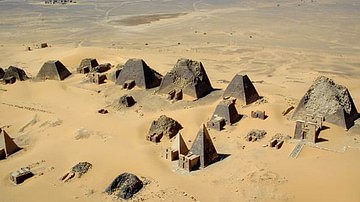
Definition
Meroë
Meroe was a wealthy metropolis of the ancient kingdom of Kush in what is today the Republic of Sudan. It was the later capital of the Kingdom of Kush (c. 1069 BCE to c. 350 CE) after the earlier capital of Napata was sacked c. 590 BCE. Prior...
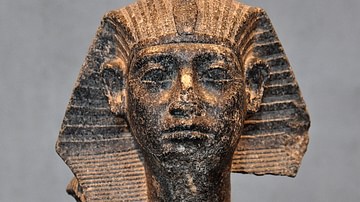
Definition
Senusret III
Senusret III (c. 1878-1860 BCE, also known as Senwosret III, Sesostris III) was the 5th king of the 12th Dynasty of the Middle Kingdom of Egypt (2040-1782 BCE). His reign is often considered the height of the Middle Kingdom which was the...

Article
The Battle of Kadesh & the Poem of Pentaur
The Poem of Pentaur is the official Egyptian record (along with The Bulletin) of the military victory of Ramesses II (known as The Great, 1279-1213 BCE) over the Hittite King Muwatalli II (1295-1272 BCE) at the Battle of Kadesh in 1274 BCE...
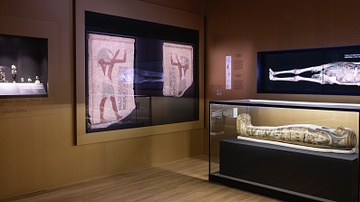
Article
Egyptian Mummies at the Montreal Museum of Fine Arts
The Montreal Museum of Fine Arts (Musée des beaux-arts de Montréal) is currently hosting the North American premiere of the exhibition Egyptian Mummies: Exploring Ancient Lives. Visitors can meet six mummies who lived in ancient Egypt from...
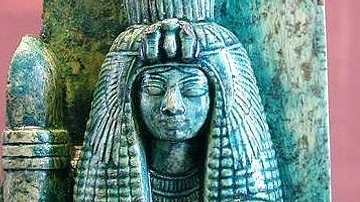
Definition
Tiye
Tiye (also known as Tiy, 1398-1338 BCE) was a queen of Egypt of the 18th dynasty, wife of the pharaoh Amenhotep III, mother of Akhenaten, and grandmother of both Tutankhamun and Ankhsenamun. She exerted an enormous influence at the courts...

Definition
Kadesh
Kadesh was a city in the region of Syria and an important center of trade in the ancient world. It is probably best known as the site of the famous battle between Pharaoh Ramesses II (The Great, 1279-1213 BCE) of Egypt and King Muwatalli...
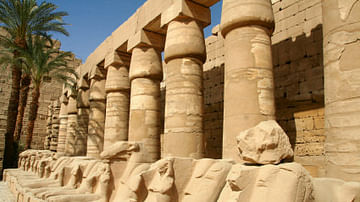
Definition
Ammon (Deity)
Ammon is the name of a Libyan deity and his oracle in the desert. It became famous after Alexander the Great made a detour to consult the god. The modern name is Siwa. Oracle at Siwa Ammon was a Libyan deity, whose oracle was situated...
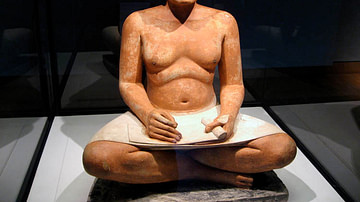
Definition
Ancient Egyptian Government
The government of ancient Egypt was a theocratic monarchy as the king ruled by a mandate from the gods, initially was seen as an intermediary between human beings and the divine, and was supposed to represent the gods' will through the laws...
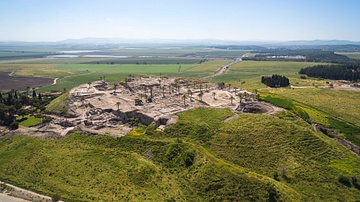
Article
Thutmose III at The Battle of Megiddo
The ancient site of Megiddo was the scene of a number of battles in antiquity and is best known as the source of the word armageddon, the Greek rendering of the Hebrew Har-Megiddo ('Mount of Megiddo') from the biblical Book of Revelation...
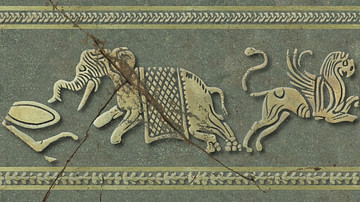
Article
Elephants in Hellenistic History & Art
Elephants were thought of as fierce and frightful monsters in antiquity, very real though rarely seen until the Hellenistic period. They were deployed on the battlefield to strike terror into the enemy, however, since fear was considered...